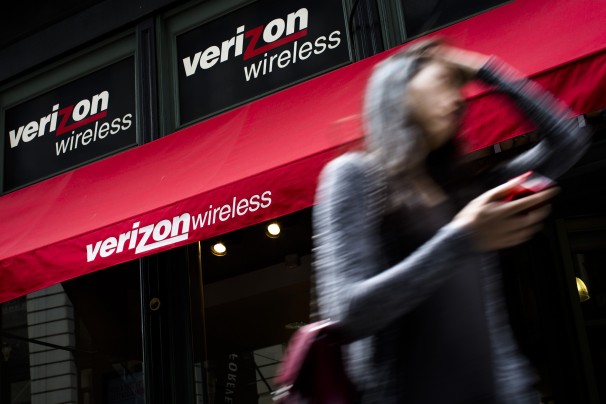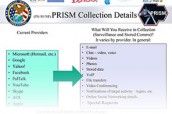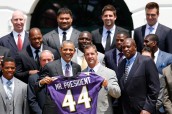Apple demonstrated that resistance is possible when it held out for more than five years, for reasons unknown, after Microsoft became PRISM’s first corporate partner in May 2007. Twitter, which has cultivated a reputation for aggressive defense of its users’ privacy, is still conspicuous by its absence from the list of “private sector partners.”
“Google cares deeply about the security of our users’ data,” a company spokesman said. “We disclose user data to government in accordance with the law, and we review all such requests carefully. From time to time, people allege that we have created a government ‘back door’ into our systems, but Google does not have a ‘back door’ for the government to access private user data.”
Graphic
NSA slides explain the PRISM data-collection program
Related stories

Anne Gearan 4:35 PM ET
The National Security Agency, nicknamed such for years, is the U.S. government’s eavesdropper-in-chief.

Ellen Nakashima 6:51 AM ET
If document requiring company to submit phone records for millions of Americans is authentic, it would be the broadest surveillance order known to date.

Timothy B. Lee 2:46 PM ET
What has the government been doing? Is it legal? Does it mean some bureaucrat somewhere has heard all your phone calls? Read on to find out.

Ellen Nakashima, Jerry Markon and Ed O’Keefe 12:53 PM ET
The National Security Agency secretly collected phone records of millions of Verizon customers.
Like market researchers, but with far more privileged access, collection managers in the NSA’s Special Source Operations group, which oversees the PRISM program, are drawn to the wealth of information about their subjects in online accounts. For much the same reason, civil libertarians and some ordinary users may be troubled by the menu available to analysts who hold the required clearances to “task” the PRISM system.
There has been “continued exponential growth in tasking to Facebook and Skype,” according to the PRISM slides. With a few clicks and an affirmation that the subject is believed to be engaged in terrorism, espionage or nuclear proliferation, an analyst obtains full access to Facebook’s “extensive search and surveillance capabilities against the variety of online social networking services.”
According to a separate “User’s Guide for PRISM Skype Collection,” that service can be monitored for audio when one end of the call is a conventional telephone and for any combination of “audio, video, chat, and file transfers” when Skype users connect by computer alone. Google’s offerings include Gmail, voice and video chat, Google Drive files, photo libraries, and live surveillance of search terms.
Firsthand experience with these systems, and horror at their capabilities, is what drove a career intelligence officer to provide PowerPoint slides about PRISM and supporting materials to The Washington Post in order to expose what he believes to be a gross intrusion on privacy. “They quite literally can watch your ideas form as you type,” the officer said.
Poitras is a documentary filmmaker and MacArthur Fellow. Julie Tate and Robert O’Harrow Jr. contributed to this report.

























.jpg)



















5000+
Comments
We're forging shackles for ourselves with our own excuses. Enough is enough!
View all comments »
Add your comment | Reply to a comment | Recommend a comment | Report an offensive comment